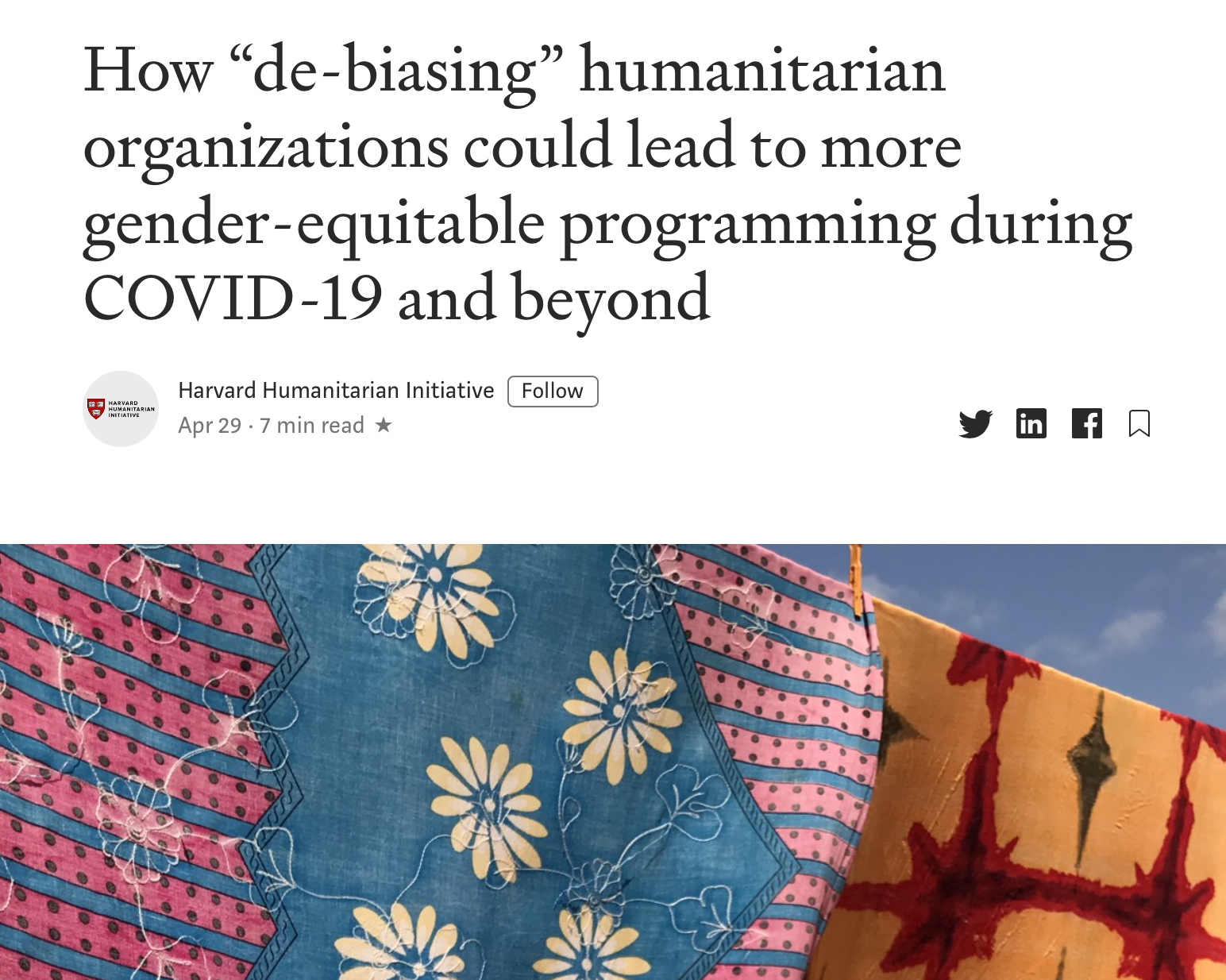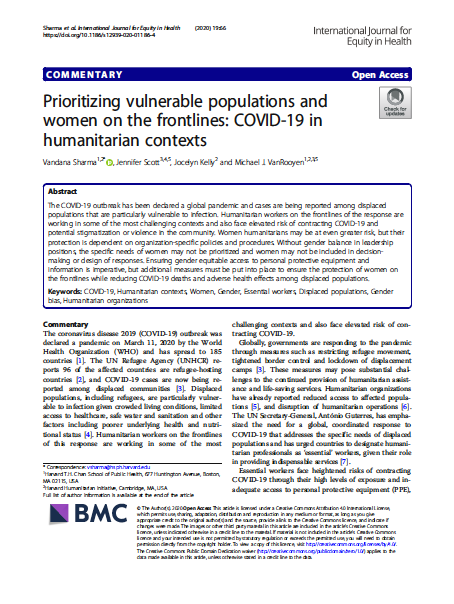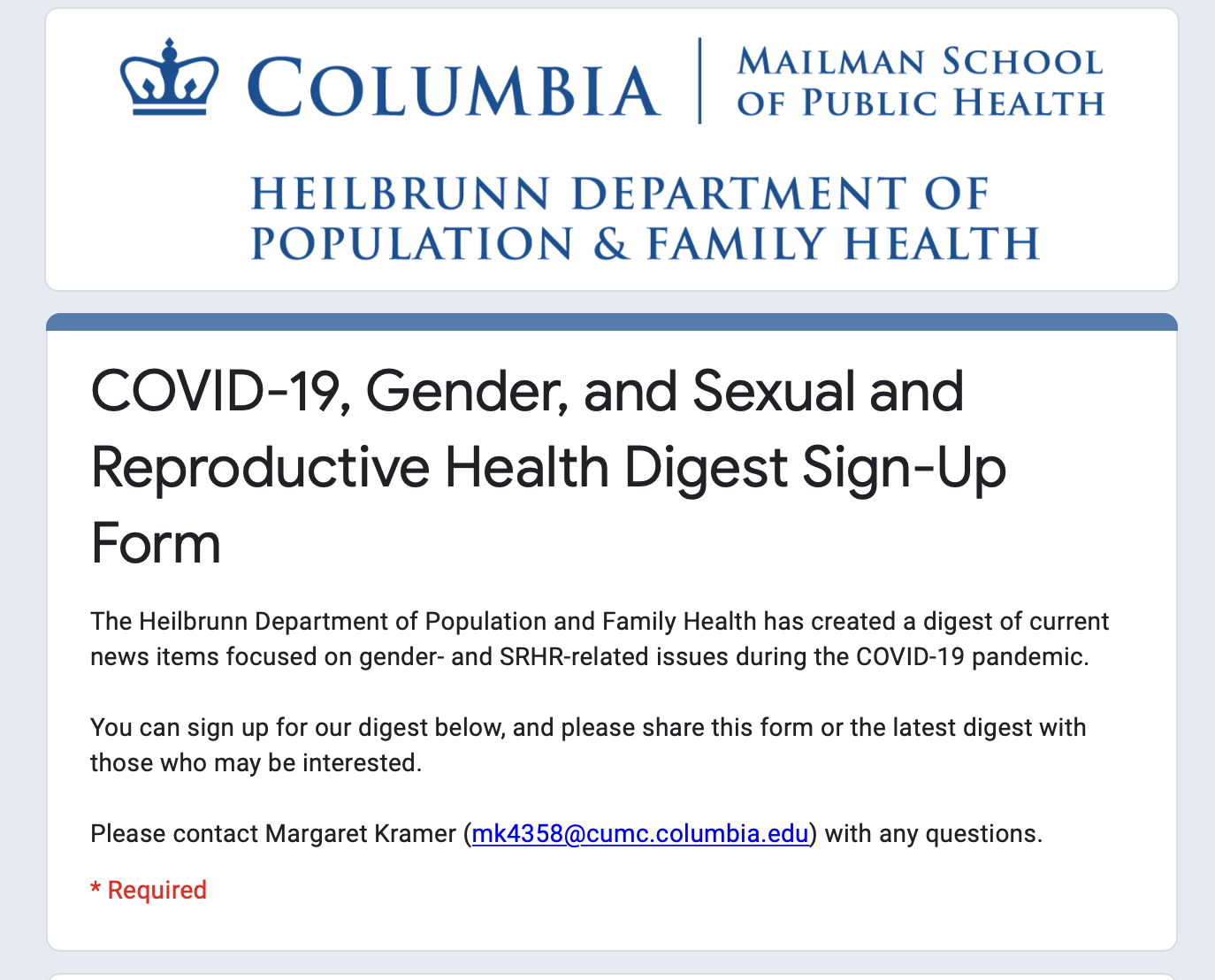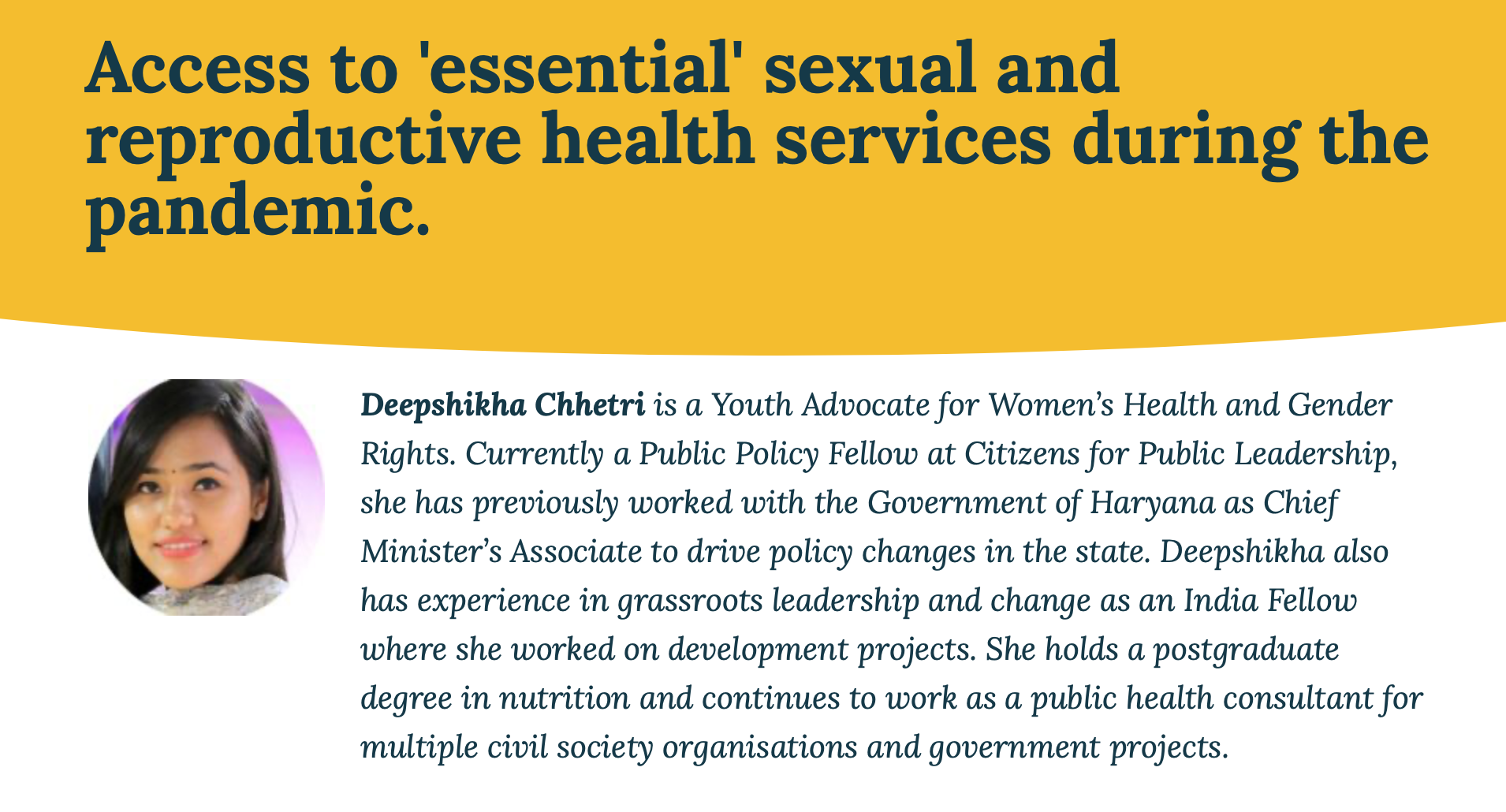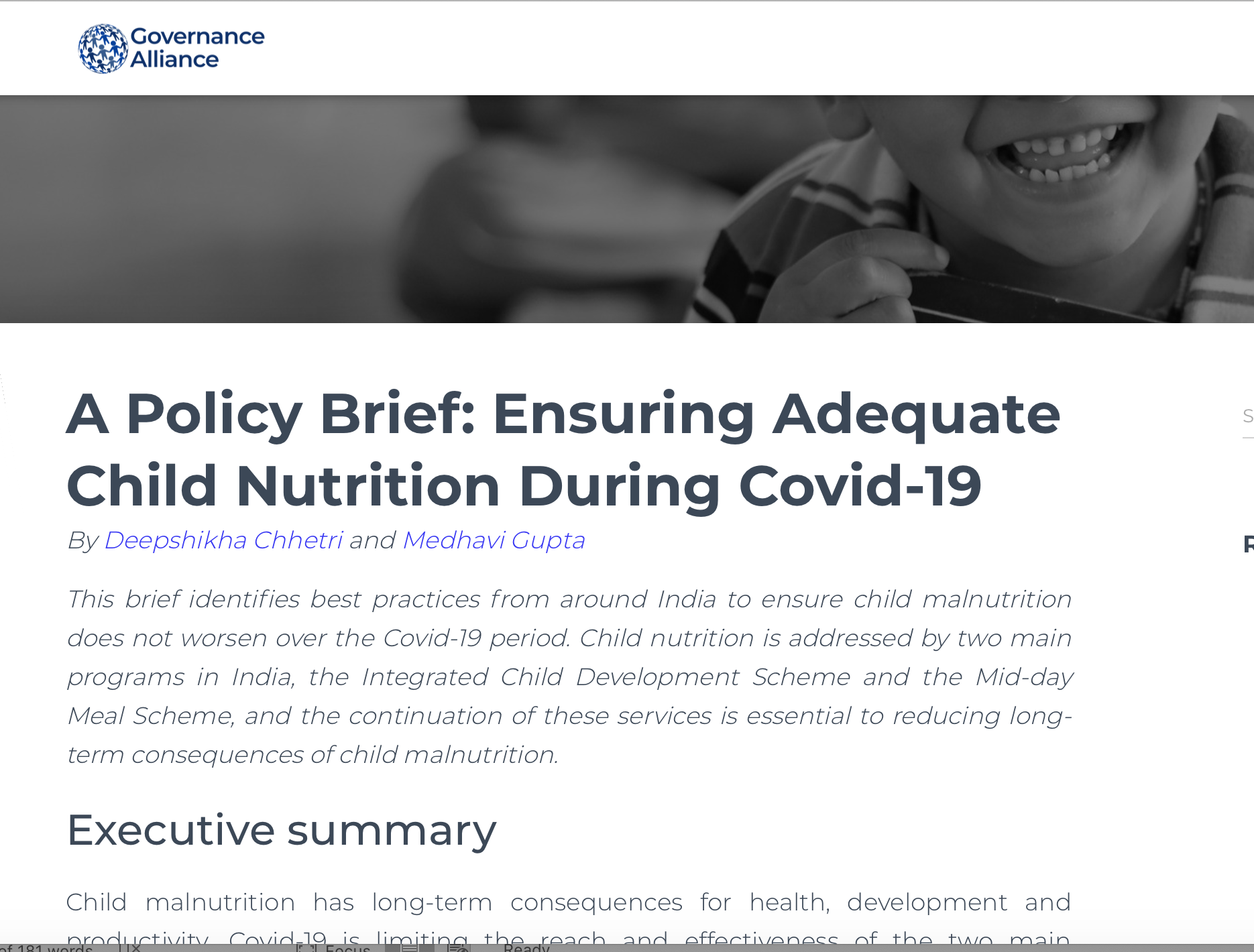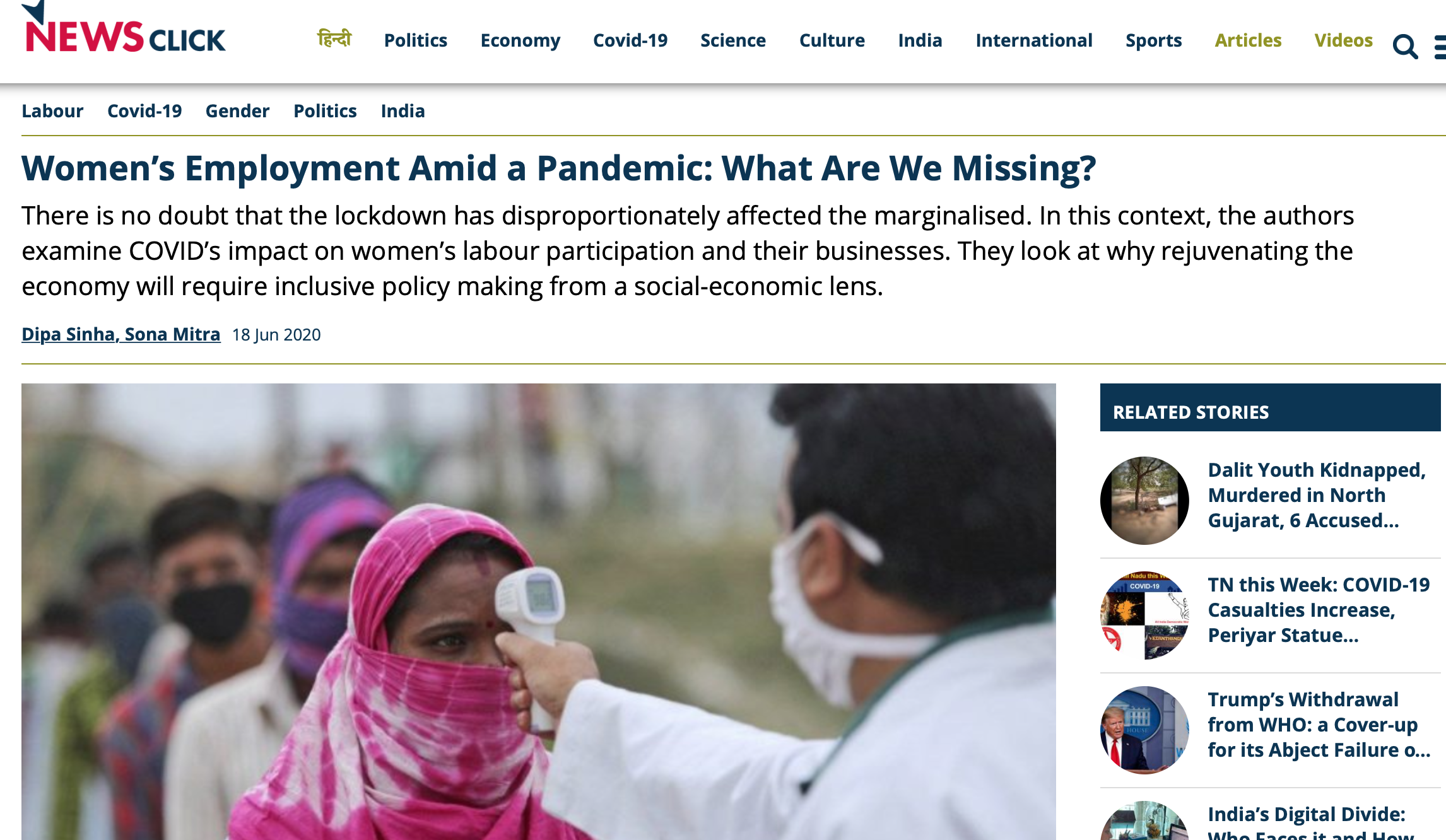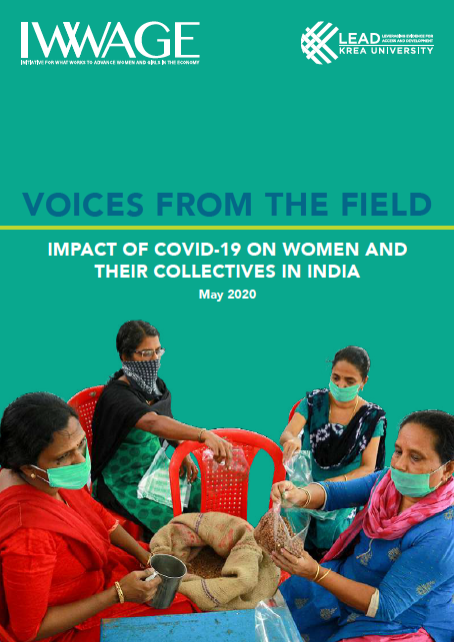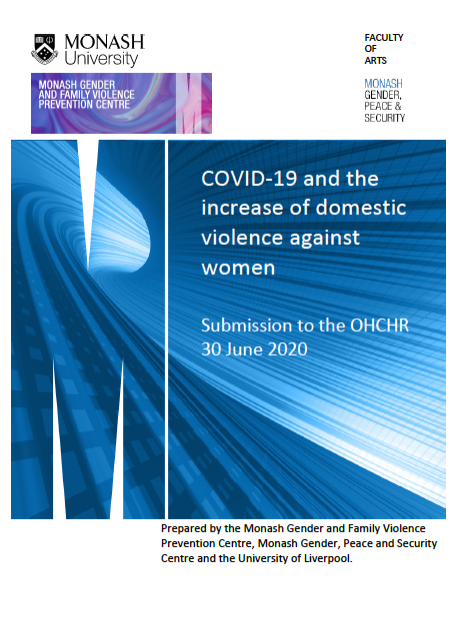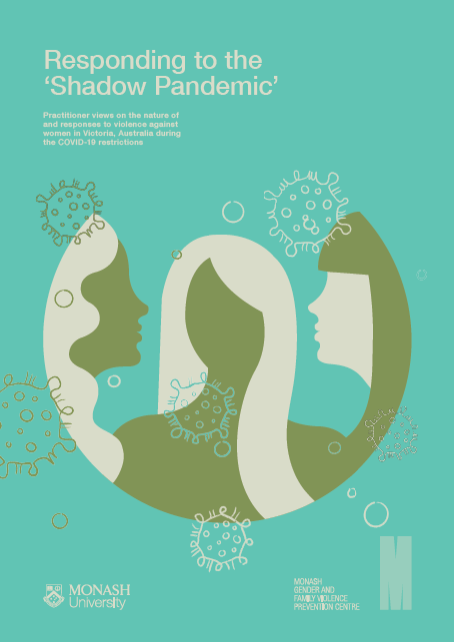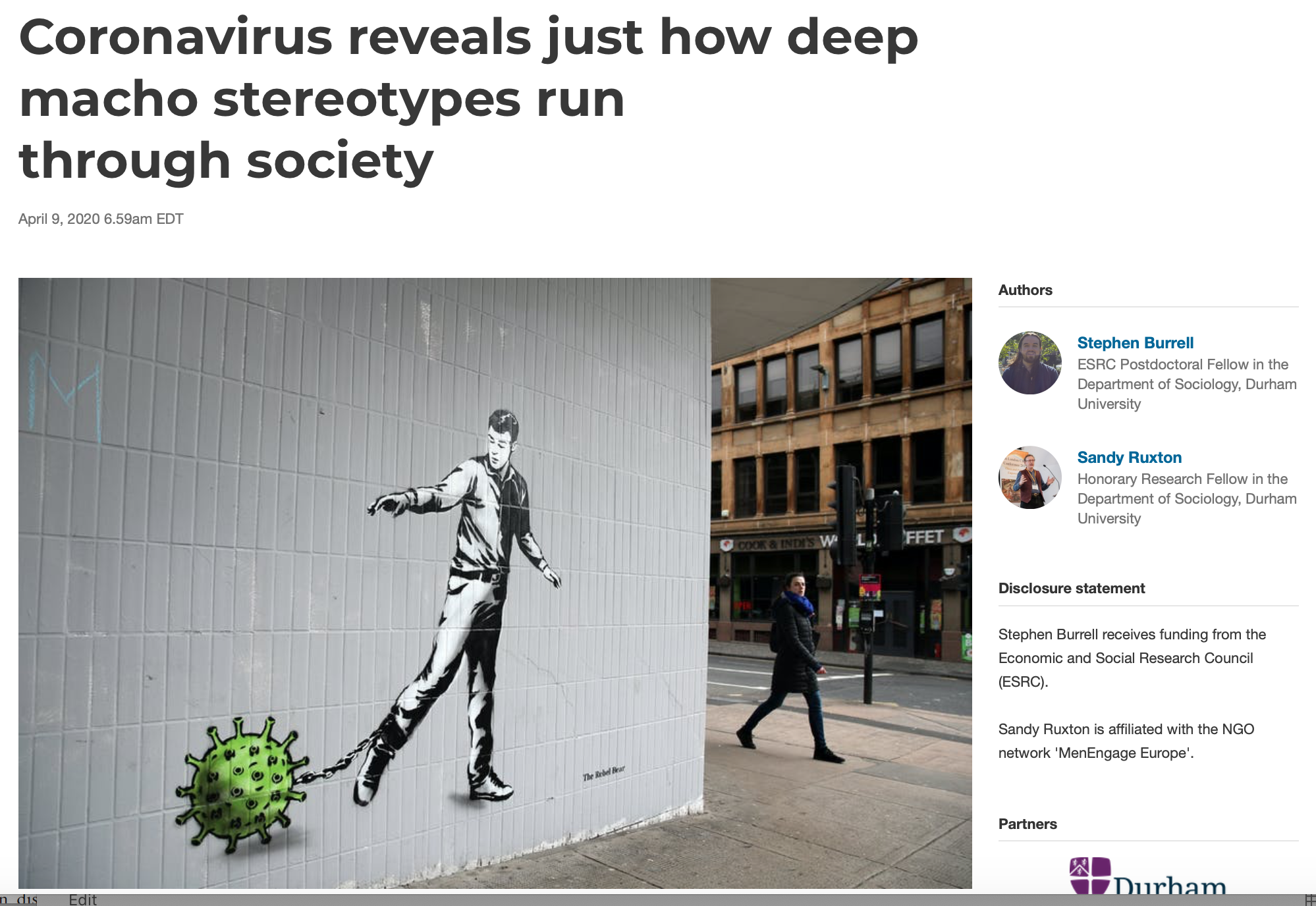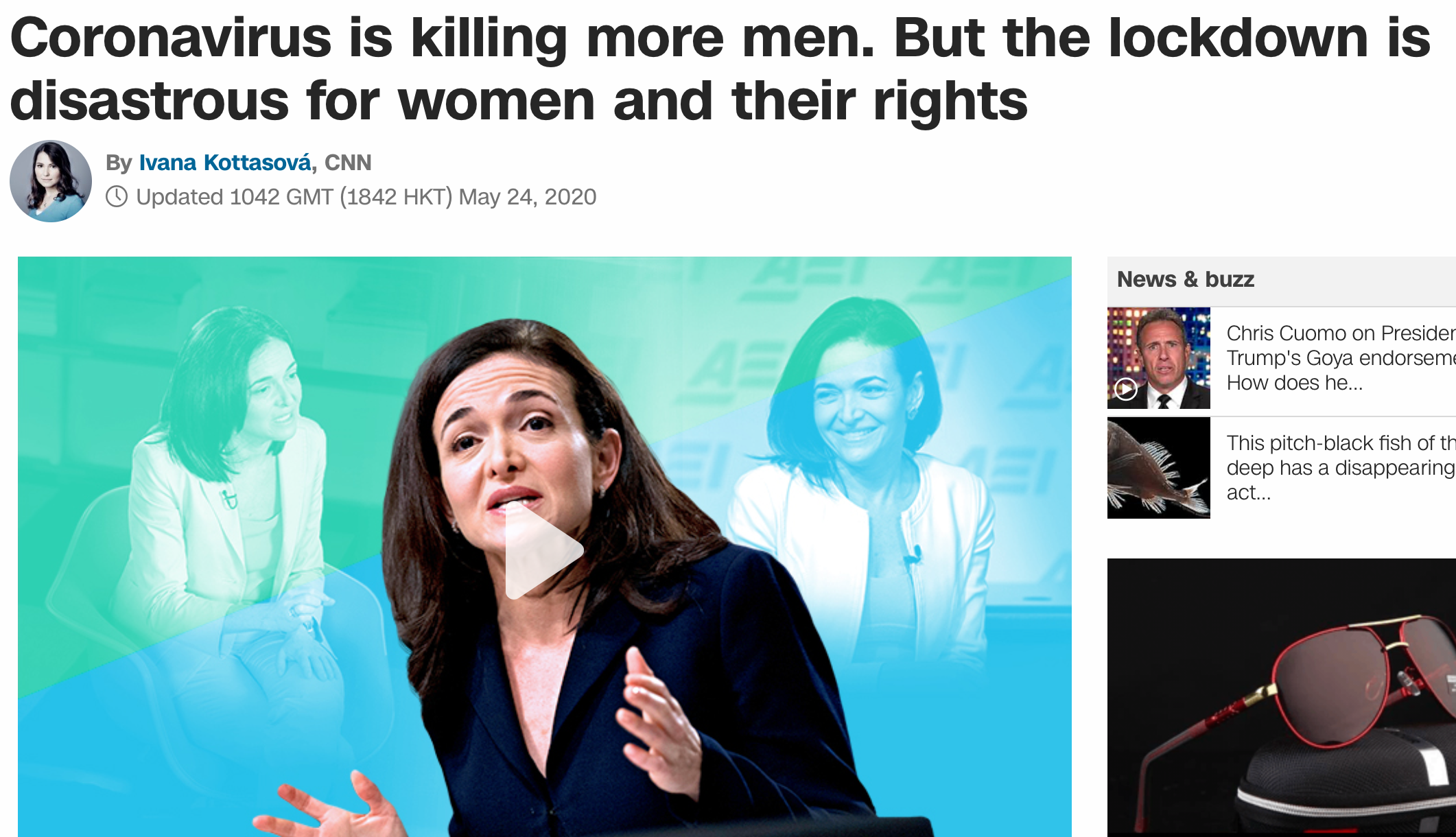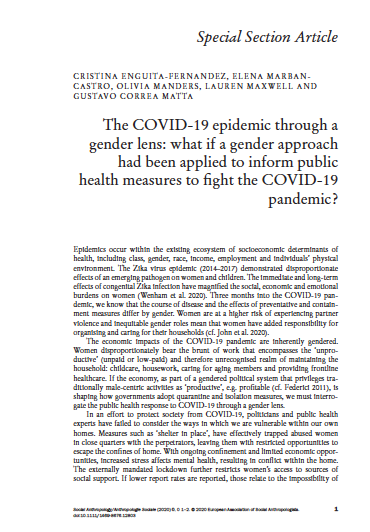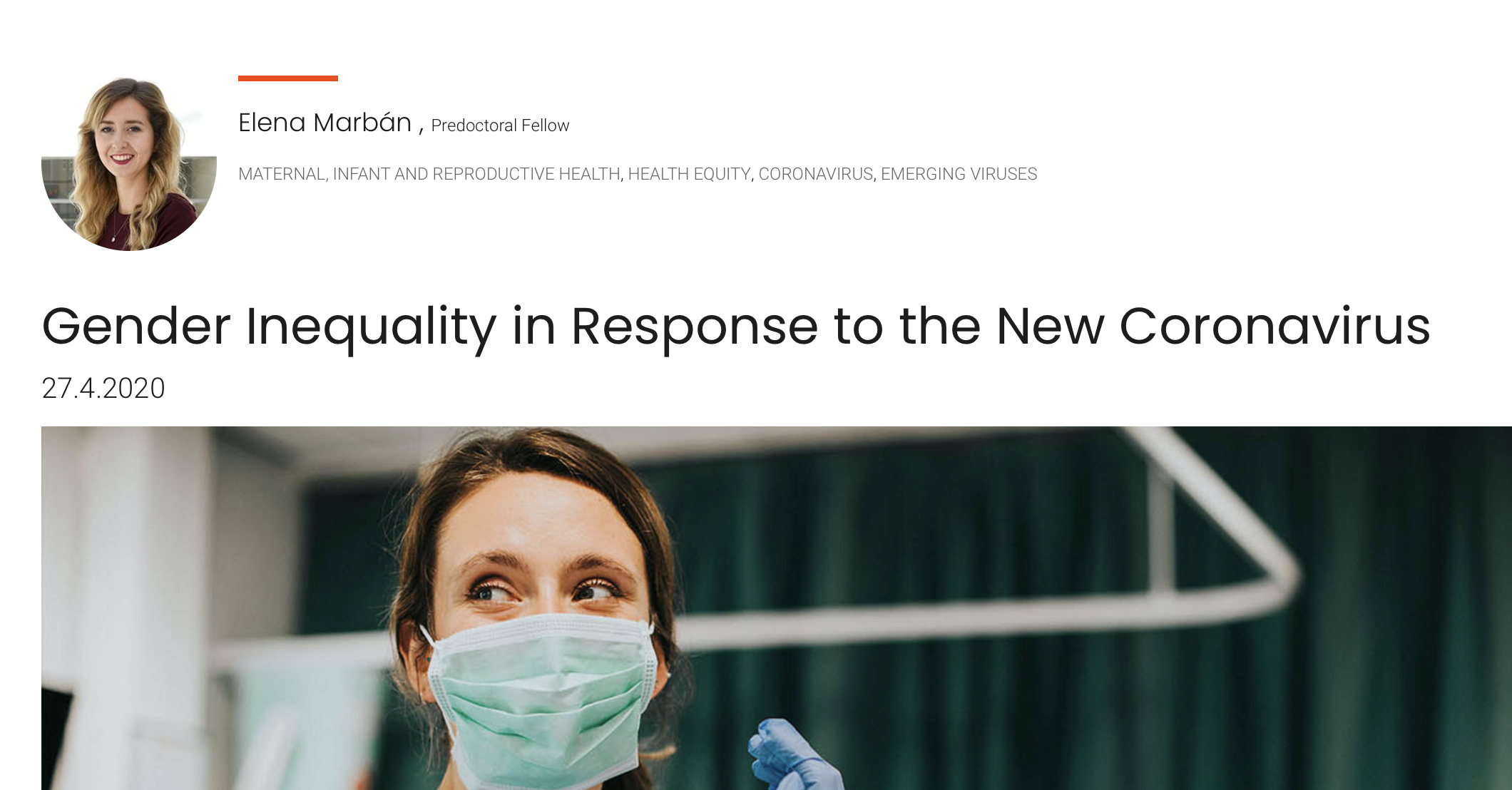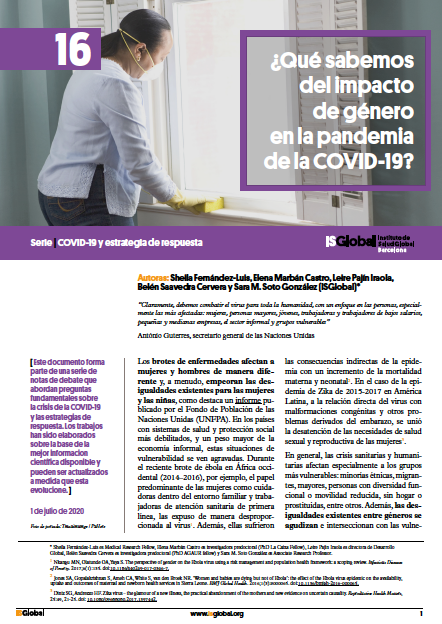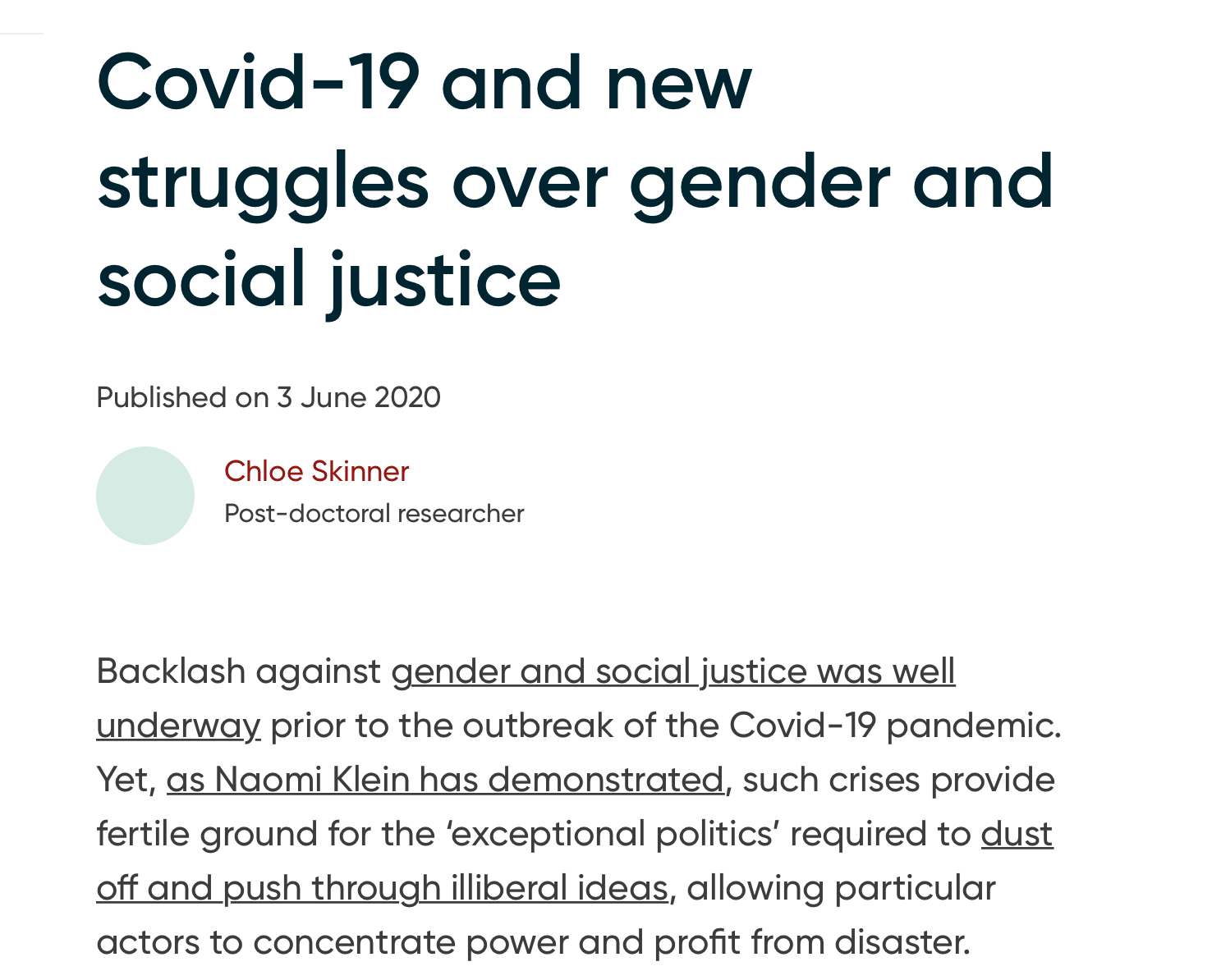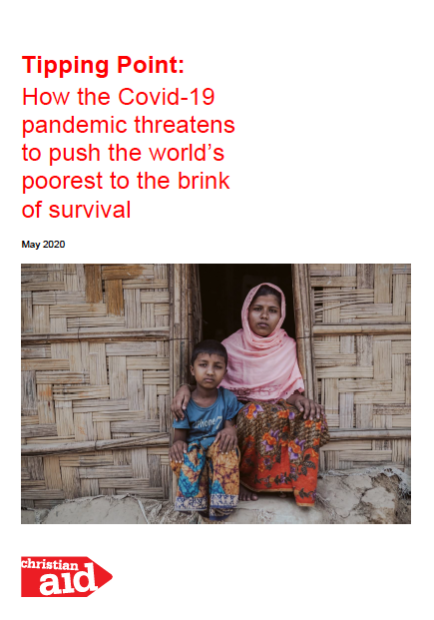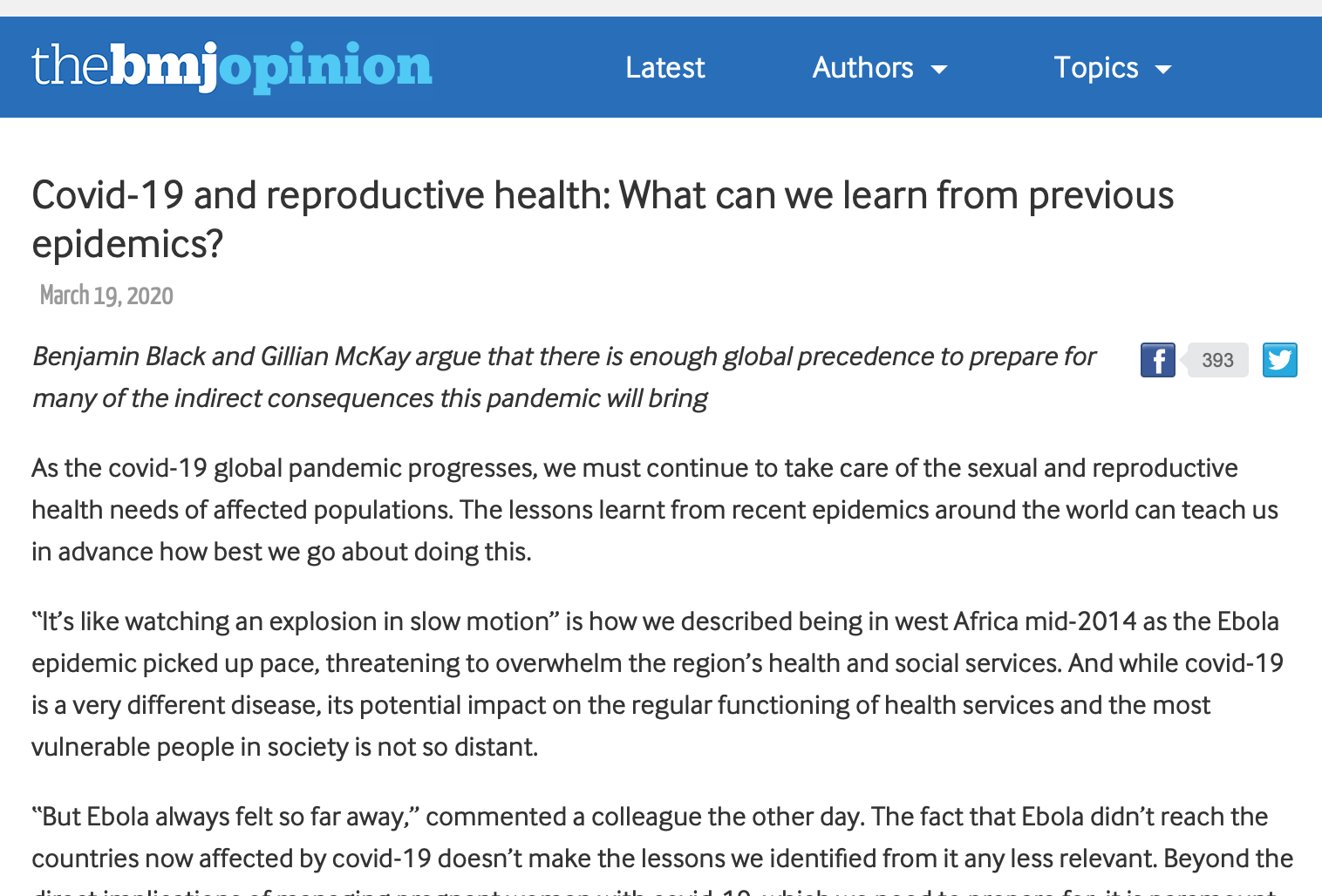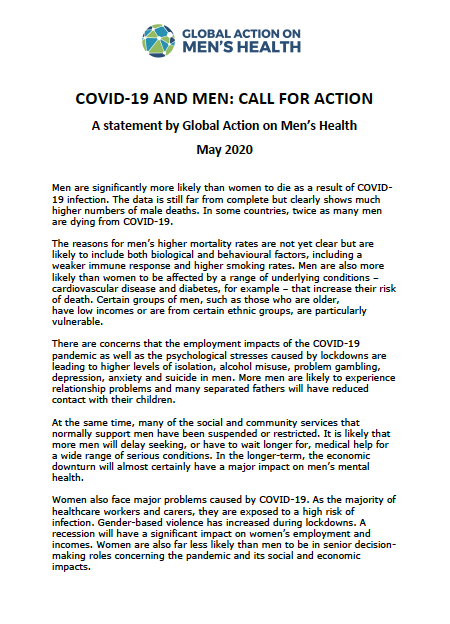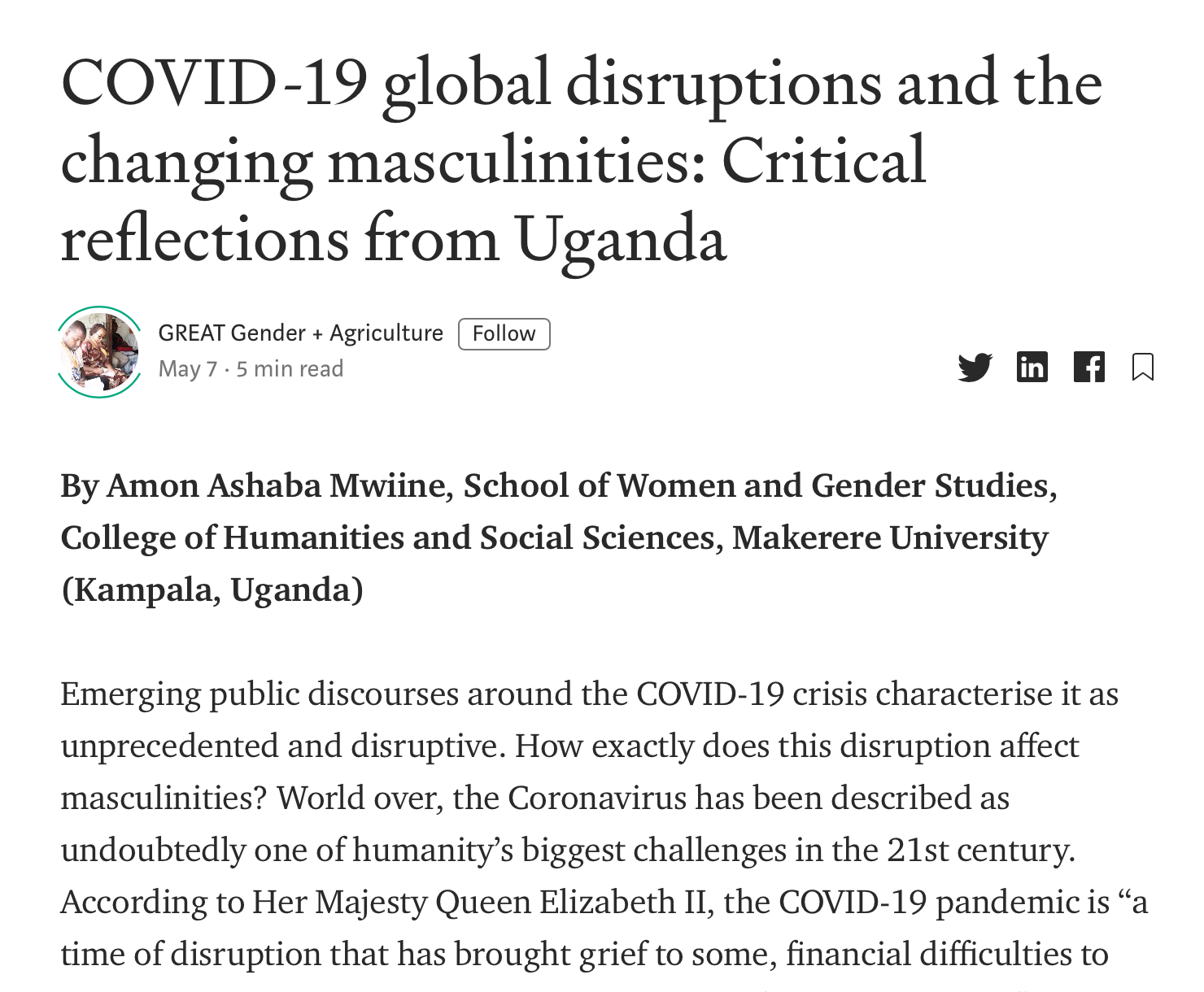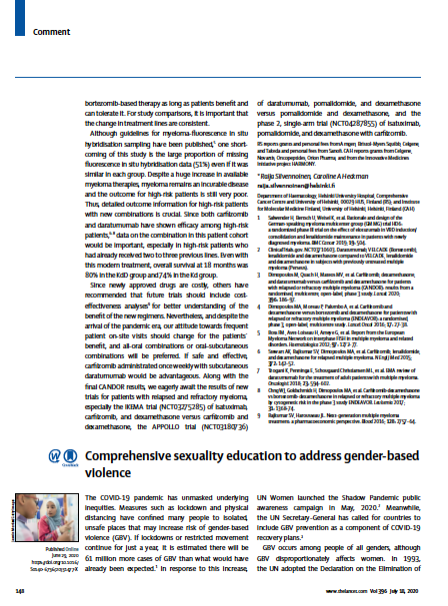Resources
![]()
This is a collection of resources from the Gender and Public Health Emergencies project and the Gender Working Group. You can search by year, country and type of resource. We hope you will enjoy reading this growing body of knowledge from around the world.
We have a wider collection of Gender and COVID-19 resources in this google document which is curated by Rosemary Morgan.
While there has been progress towards achieving gender equality globally, a recent study by the United Nations Development Programme (UNDP), which included data from 75 countries, reported that 91% of men and 84% of women hold gender biases against women [1]. Using the Gender Norms Index (GNI) [2] to assess social beliefs and attitudes towards […]
The COVID-19 outbreak has been declared a global pandemic and cases are being reported among displaced populations that are particularly vulnerable to infection. Humanitarian workers on the frontlines of the response are working in some of the most challenging contexts and also face elevated risk of contracting COVID-19 and potential stigmatization or violence in the […]
The Heilbrunn Department of Population and Family Health has created a digest of current news items focused on gender- and SRHR-related issues during the COVID-19 pandemic. You can sign up for the digest using the link. The Heilbrunn Department of Population and Family Health at Columbia Mailman COVID-19, Gender, and Sexual and Reproductive Health Digest.
COVID-19 has rerouted focus and resources internationally, yet there are needs which cannot be compromised even during emergencies – sexual and reproductive health services. The article addresses the current challenges to women’s health and what immediate action needs to be taken to attend to the health of millions of women. Deepshikha Chhetri. (2020). Access to […]
Child malnutrition has long-term consequences for health, development and productivity. Covid-19 is limiting the reach and effectiveness of the two main nutrition programs in India: The Integrated Child Development Scheme and the Mid-day Meal Scheme. Currently, many Anganwadi workers are being overburdened with Covid-19-related activities and have ceased the provision of meals. Children in containment […]
There is no doubt that the lockdown has disproportionately affected the marginalised. In this context, the authors examine COVID’s impact on women’s employment and their businesses. They look at why rejuvenating the economy will require inclusive policy making from a social-economic lens. Dipa Sinha and Sona Mitra. (2020). Women’s Employment Amid a pandemic: what are […]
The report summarises the challenges women and their collectives are facing during the lockdown and concludes with a series of recommendations. Tankha, Rukmini (2020). Voices for the field: impact of COVID-19 on women and their collectives in India. What Works to Advance Women and Girls in the Economy (IWWAGE).
This submission has been prepared by members of the Monash Gender and Family Violence Prevention Centre (MGFVPC), the Monash Gender, Peace and Security Centre (GPS), and the University of Liverpool (UK). It focuses on how the COVID-19 pandemic has impacted the nature and prevalence of domestic violence against women as well as service responses to […]
The COVID-19 global health pandemic has increased women’s vulnerability to all forms of gender-based violence. Australia, like many other countries worldwide, entered into a period of government directed lockdowns in the first weeks of March 2020 including stay-at-home orders and movement restrictions. With more people confined to their homes to reduce the community spread of […]
Early indications suggest more men are dying from COVID-19 than women – although some countries, including the UK, are not publishing data on this. Experts are unsure exactly why this might be. It may in part be due to differences in biology. Suggestions have been made, for example, that it might be because men and […]
London (CNN) – The novel coronavirus seems to be more deadly for men. But in many other ways, women are bearing the brunt of this pandemic. From a spike in domestic violence and restricted access to family-planning services to disproportionate economic impact, the lockdown measures put in place to stop the outbreak are hurting women […]
Epidemics occur within the existing ecosystem of socioeconomic determinants of health, including class, gender, race, income, employment and individuals’ physical environment. The Zika virus epidemic (2014–2017) demonstrated disproportionate effects of an emerging pathogen on women and children. The immediate and long‐term effects of congenital Zika infection have magnified the social, economic and emotional burdens on […]
Disease outbreaks affect men and women differently. Early studies suggest that the SARS-CoV-2 virus may be killing more men than women. This disparity may be due to factors related to sex (biological) or gender (unhealthy habits such as drinking or smoking). At the same time, pandemics and the measures taken to control them exacerbate existing […]
Los brotes de enfermedades afectan a mujeres y hombres de manera diferente y, a menudo, empeoran las desigualdades existentes para las mujeres y las niñas, como destaca un informe publicado por el Fondo de Población de las Naciones Unidas (UNFPA). En los países con sistemas de salud y protección social más debilitados, y un peso […]
Backlash against gender and social justice was well underway prior to the outbreak of the Covid-19 pandemic. Yet, as Naomi Klein has demonstrated, such crises provide fertile ground for the ‘exceptional politics’ required to dust off and push through illiberal ideas, allowing particular actors to concentrate power and profit from disaster… Chloe Skinner. (2020). Covid-19 […]
On 11 March, when the World Health Organization declared Covid- 19 a pandemic, its Director-General Dr Tedros Adhanom Ghebreyesus expressed confidence that time was still on our side. “All countries can still change the course of this pandemic… We’re in this together,” he said. Together, countries in the global North and South face an unprecedented […]
Benjamin Black and Gillian McKay argue that there is enough global precedence to prepare for many of the indirect consequences this pandemic will bring. Black, B. & McKay, G. (2020). Covid-19 and reproductive health: What can we learn from previous epidemics? BMJ Opinion.
Men are significantly more likely than women to die as a result of COVID- 19 infection. The data is still far from complete but clearly shows much higher numbers of male deaths. In some countries, twice as many men are dying from COVID-19. The reasons for men’s higher mortality rates are not yet clear but […]
Emerging public discourses around the COVID-19 crisis characterise it as unprecedented and disruptive. How exactly does this disruption affect masculinities? World over, the Coronavirus has been described as undoubtedly one of humanity’s biggest challenges in the 21st century. According to Her Majesty Queen Elizabeth II, the COVID-19 pandemic is “a time of disruption that has […]
The COVID-19 pandemic has unmasked underlying inequities. Measures such as lockdown and physical distancing have confined many people to isolated, unsafe places that may increase risk of gender-based violence (GBV). If lockdowns or restricted movement continue for just a year, it is estimated there will be 61 million more cases of GBV than what would […]
Resources
![]()
This is a collection of resources from the Gender and COVID-19 project and the Gender Working Group. You can search by year, country and type of resource. We hope you will enjoy reading this growing body of knowledge from around the world.
We have a wider collection of Gender and COVID-19 resources in this google document which is curated by Rosemary Morgan.
While there has been progress towards achieving gender equality globally, a recent study by the United Nations Development Programme (UNDP), which included data from 75 countries, reported that 91% of men and 84% of women hold gender biases against women [1]. Using the Gender Norms Index (GNI) [2] to assess social beliefs and attitudes towards […]
The COVID-19 outbreak has been declared a global pandemic and cases are being reported among displaced populations that are particularly vulnerable to infection. Humanitarian workers on the frontlines of the response are working in some of the most challenging contexts and also face elevated risk of contracting COVID-19 and potential stigmatization or violence in the […]
The Heilbrunn Department of Population and Family Health has created a digest of current news items focused on gender- and SRHR-related issues during the COVID-19 pandemic. You can sign up for the digest using the link. The Heilbrunn Department of Population and Family Health at Columbia Mailman COVID-19, Gender, and Sexual and Reproductive Health Digest.
COVID-19 has rerouted focus and resources internationally, yet there are needs which cannot be compromised even during emergencies – sexual and reproductive health services. The article addresses the current challenges to women’s health and what immediate action needs to be taken to attend to the health of millions of women. Deepshikha Chhetri. (2020). Access to […]
Child malnutrition has long-term consequences for health, development and productivity. Covid-19 is limiting the reach and effectiveness of the two main nutrition programs in India: The Integrated Child Development Scheme and the Mid-day Meal Scheme. Currently, many Anganwadi workers are being overburdened with Covid-19-related activities and have ceased the provision of meals. Children in containment […]
There is no doubt that the lockdown has disproportionately affected the marginalised. In this context, the authors examine COVID’s impact on women’s employment and their businesses. They look at why rejuvenating the economy will require inclusive policy making from a social-economic lens. Dipa Sinha and Sona Mitra. (2020). Women’s Employment Amid a pandemic: what are […]
The report summarises the challenges women and their collectives are facing during the lockdown and concludes with a series of recommendations. Tankha, Rukmini (2020). Voices for the field: impact of COVID-19 on women and their collectives in India. What Works to Advance Women and Girls in the Economy (IWWAGE).
This submission has been prepared by members of the Monash Gender and Family Violence Prevention Centre (MGFVPC), the Monash Gender, Peace and Security Centre (GPS), and the University of Liverpool (UK). It focuses on how the COVID-19 pandemic has impacted the nature and prevalence of domestic violence against women as well as service responses to […]
The COVID-19 global health pandemic has increased women’s vulnerability to all forms of gender-based violence. Australia, like many other countries worldwide, entered into a period of government directed lockdowns in the first weeks of March 2020 including stay-at-home orders and movement restrictions. With more people confined to their homes to reduce the community spread of […]
Early indications suggest more men are dying from COVID-19 than women – although some countries, including the UK, are not publishing data on this. Experts are unsure exactly why this might be. It may in part be due to differences in biology. Suggestions have been made, for example, that it might be because men and […]
London (CNN) – The novel coronavirus seems to be more deadly for men. But in many other ways, women are bearing the brunt of this pandemic. From a spike in domestic violence and restricted access to family-planning services to disproportionate economic impact, the lockdown measures put in place to stop the outbreak are hurting women […]
Epidemics occur within the existing ecosystem of socioeconomic determinants of health, including class, gender, race, income, employment and individuals’ physical environment. The Zika virus epidemic (2014–2017) demonstrated disproportionate effects of an emerging pathogen on women and children. The immediate and long‐term effects of congenital Zika infection have magnified the social, economic and emotional burdens on […]
Disease outbreaks affect men and women differently. Early studies suggest that the SARS-CoV-2 virus may be killing more men than women. This disparity may be due to factors related to sex (biological) or gender (unhealthy habits such as drinking or smoking). At the same time, pandemics and the measures taken to control them exacerbate existing […]
Los brotes de enfermedades afectan a mujeres y hombres de manera diferente y, a menudo, empeoran las desigualdades existentes para las mujeres y las niñas, como destaca un informe publicado por el Fondo de Población de las Naciones Unidas (UNFPA). En los países con sistemas de salud y protección social más debilitados, y un peso […]
Backlash against gender and social justice was well underway prior to the outbreak of the Covid-19 pandemic. Yet, as Naomi Klein has demonstrated, such crises provide fertile ground for the ‘exceptional politics’ required to dust off and push through illiberal ideas, allowing particular actors to concentrate power and profit from disaster… Chloe Skinner. (2020). Covid-19 […]
On 11 March, when the World Health Organization declared Covid- 19 a pandemic, its Director-General Dr Tedros Adhanom Ghebreyesus expressed confidence that time was still on our side. “All countries can still change the course of this pandemic… We’re in this together,” he said. Together, countries in the global North and South face an unprecedented […]
Benjamin Black and Gillian McKay argue that there is enough global precedence to prepare for many of the indirect consequences this pandemic will bring. Black, B. & McKay, G. (2020). Covid-19 and reproductive health: What can we learn from previous epidemics? BMJ Opinion.
Men are significantly more likely than women to die as a result of COVID- 19 infection. The data is still far from complete but clearly shows much higher numbers of male deaths. In some countries, twice as many men are dying from COVID-19. The reasons for men’s higher mortality rates are not yet clear but […]
Emerging public discourses around the COVID-19 crisis characterise it as unprecedented and disruptive. How exactly does this disruption affect masculinities? World over, the Coronavirus has been described as undoubtedly one of humanity’s biggest challenges in the 21st century. According to Her Majesty Queen Elizabeth II, the COVID-19 pandemic is “a time of disruption that has […]
The COVID-19 pandemic has unmasked underlying inequities. Measures such as lockdown and physical distancing have confined many people to isolated, unsafe places that may increase risk of gender-based violence (GBV). If lockdowns or restricted movement continue for just a year, it is estimated there will be 61 million more cases of GBV than what would […]
